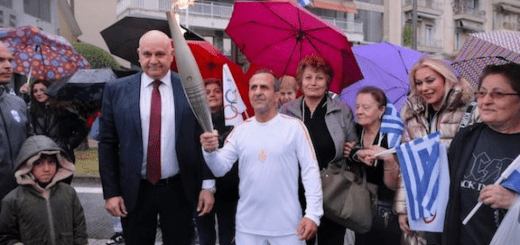Two Turkish Generals Among the 10 Worst in World War I

BY KATHY BENJAMIN
Grunge.com
While all wars are horrible, World War I stands out as particularly terrible for everyone involved. Some have argued it was not just the worst war, but the worst catastrophe ever experienced by society. It was certainly the catalyst for many of the other terrible events of the 20th century that would follow, not least World War II. Thanks to new ways of killing that were in wide use for the first time — including the machine gun and poison gas — the number of dead soldiers was staggering. During the months-long Battle of the Somme, over 1 million British and Germans were killed or injured. The first day of that battle, July 1, 1916, is still the deadliest day in British military history, with almost 20,000 soldiers killed and nearly 40,000 injured.
The vast majority of the people killed had no control over battle plans or tactics. The blame falls to the men in charge, whose screwups led to the deaths of thousands. Just like World War I is complicated, so too are the reputations of some of these generals. In some cases, historians have debated how much blame they deserve for the war’s various disasters, or if their successful actions outweigh their failures. In other cases, though, no one has ever tried to defend the incompetence of these military leaders.
Enver Pasha
Enver Pasha effectively appointed himself head of the Ottoman military days before World War I began. This was his first mistake, as he couldn’t see what those around him did, namely that he was terrible at everything to do with the military. This became clear when he ordered a winter attack on Russian forces, instructing his troops to leave their tents and even coats behind so they could march faster. The resulting casualties in the Battle of Sarıkamış crippled the Ottoman forces.
But the worst thing Enver was responsible for during World War I was the Armenian Genocide. United States Ambassador Henry Morgenthau wrote about some of his conversations with Enver in his memoir “Ambassador Morgenthau’s Story.” Enver was unapologetic, claiming that the realities of wartime required him to exterminate the Armenian people: “The Armenians had a fair warning of what would happen to them in case they joined our enemies. … While we are engaged in such a struggle as this, we cannot permit people in our own country to attack us in the back. We have got to prevent this no matter what means we have to resort to.”
Another time, when Morgenthau tried to give Enver plausible deniability by implying it was those beneath him who were really to blame for the atrocities, Enver was incensed, insisting, “I have no desire to shift the blame on to our underlings and I am entirely willing to accept the responsibility myself for I am convinced that we are completely justified in doing this …”
Djemal Pasha
Djemal (also spelled Cemal) Pasha was one of the three Pashas controlling the Ottoman Empire during World War I, but he managed to carve out a little empire-within-an-empire for himself. For most of the war, he was not only a general but the governor of Syria. There, and in neighboring areas, he managed to terrorize civilians just as much as any of his armies could. He confiscated food supplies, deported families he didn’t trust, and crushed dissent.
It was not only the locals who suffered under Djemal; his troops did as well. In fact, many of those soldiers were originally local civilians whom the pasha forcibly conscripted into the military. In Jeruselum, most were put in hard labor camps rather than being sent to fight. When these tactics led to men deserting every chance they got, Djemal had five of them seized and publically hanged. It appears that Djemal deliberately sent people he believed to be traitors to particularly dangerous areas on the front lines in the hopes they would be killed. He also led a disastrous attempt to take control of the Suez Canal, which saw 10% of his forces killed and made him a laughingstock.
While Djemal had plenty of atrocities laid at his own feet, he was angry about getting any blame for the Armenian genocide. Before his assassination in 1922, he wrote a very self-serving memoir of the war in which he claimed to have actually helped the Armenians, while others ordered their extermination.







